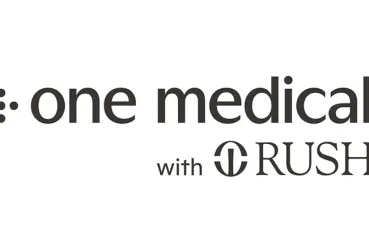Ever experience an unfamiliar ache and turn to the Internet for advice? If so, you're not alone.
While there's nothing wrong with searching the world's largest information resource for health information, it can often lead to something worse than the ache itself: fear.
A web search can unearth a plethora of possible causes for that ache, ranging from a bad mattress to a life-threatening disease.
That's why we asked Rupel Dedhia, MD, a primary care physician at Rush, about her experiences with patients using the web as a health resource and her thoughts on using it wisely.
Pre-appointment research
These days, most people are pretty internet savvy and turn to the web for many of their health questions before seeing their doctor. When they come to their appointments, they typically arrive with plenty of information.
According to Dedhia, some of the information is accurate, some is not.
"Having some sort of knowledge base, though, is good because it sparks discussion between doctor and patient," she says. "And I often point my patients to websites so they can gather additional information after our appointments."
Too much information?
It can be problematic when patients diagnose themselves or jump to the worst conclusions based on their research.
"I spend a fair amount of time assuring patients that their problems aren't as dire as they think," Dedhia explains. "And often, they don't have what they think they have."
Even more troubling is when a person starts a treatment regimen — say, doing colonic cleanses for a suspected gastrointestinal condition — based on what they read on the internet and not from what a doctor prescribed following a thorough examination.
Before making these types of decisions, always talk to your doctor. In addition to ensuring you get the right diagnosis, he or she can explain the potential benefits and risks of supplements, diet plans, exercises, etc.
Don't use the web to self-diagnose
While the web can do a lot of amazing things, unlike doctors, it can't do physical exams, process in-depth questions about your health and your family's health histories, and order, evaluate and perform follow-up tests.
It also can't tell you what you don't have. "That's what doctors do, and that's how we develop diagnoses," Dedhia says.
Having some sort of knowledge base is good because it sparks discussion between doctor and patient. And I often point my patients to websites so they can gather additional information after our appointments.
Finding reliable health information
"I think it’s great that we have so much information at our fingertips via the internet, and I encourage my patients to use the web," Dedhia says. "But I also encourage them to exercise caution."
If you are experiencing a troubling symptom, such as a rash or series of headaches, it's OK to do some online investigating. But schedule an appointment with your doctor as well.
And make sure to visit websites with reliable information:
- Be wary of any site that seems to be selling products.
- Opt for a reputable source:
- A government site (e.g., the National Institutes of Health or Centers for Disease Control).
- A hospital's official site, such as Rush's.
- A site hosted by a national organization dedicated to specific diseases (e.g., the American Heart Association or American Cancer Society).
- Go directly to a dedicated health information sites rather than relying on a search engine to find the information. "Search engines can unearth a host of unreliable sites," Dedhia says. "Sometimes just the magnitude of search results can be unnerving, so avoid that stressor and go directly to the source. Just make sure it's trustworthy."
If the content is written by a doctor or health expert, you're probably on safe ground.
It's also a good idea to check the date to ensure that content is current or that it has been reviewed recently.




